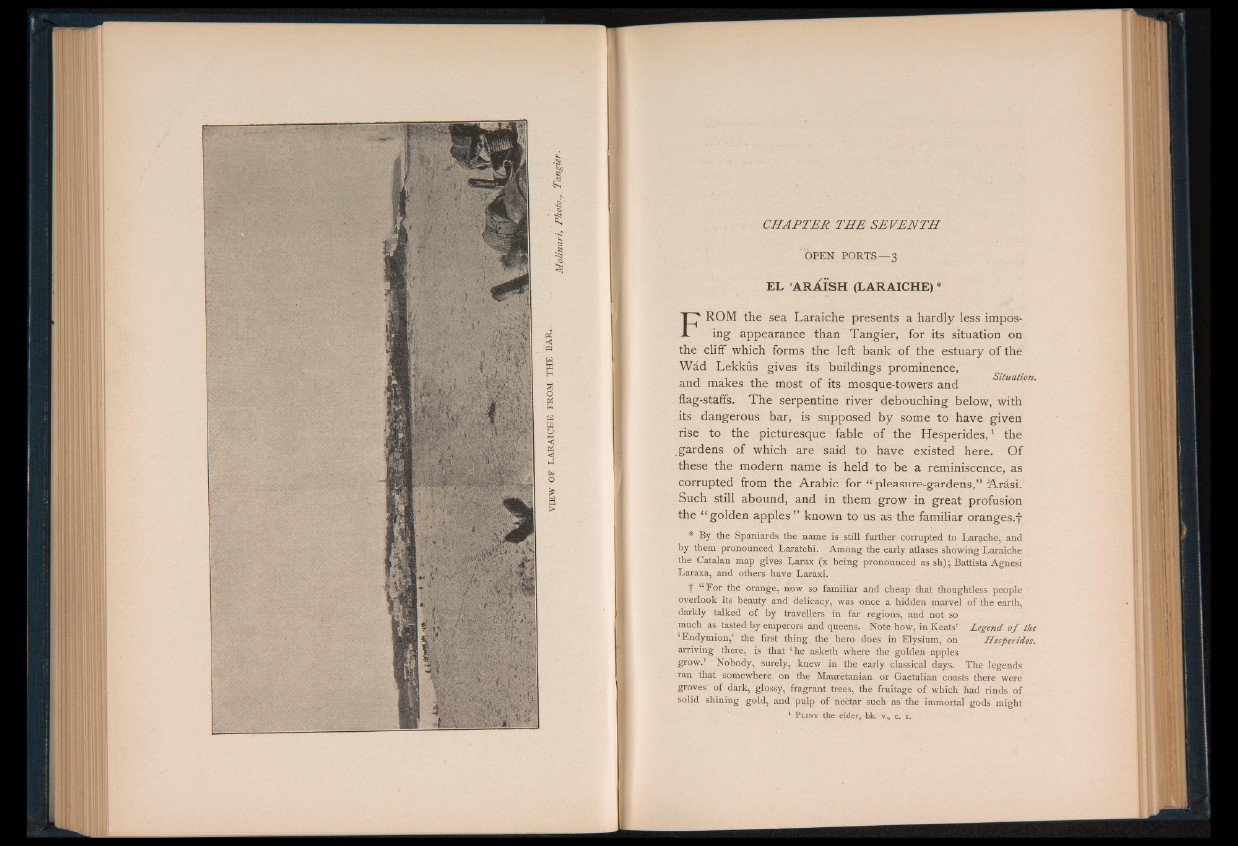
VIEW OF LARAICHE FROM THE BAR.
CHAPTER TH E SE V E N TH
OPEN PORTS— 3
EL ‘ARAISH (LARAICHE) *
FROM the sea Laraiche presents a hardly less imposing
appearance than Tangier, for its situation on
the cliff which forms the left bank of the estuary o f the
Wad Lekkus gives its buildings prominence,
and makes the most of its mosque-towers and
flag-staffs. The serpentine river debouching below, with
its dangerous bar, is supposed by some to have given
rise to the picturesque fable of the Hesperides,1 the
gardens of which are said to have existed here. Of
these the modern name is held to be a reminiscence, as
corrupted from the Arabic for “ pleasure-gardens,” Arasi.
Such still abound, and in them grow in great profusion
the “ golden apples” known to us as the familiar oranges.f
* By the Spaniards the name is still further corrupted to Larache, and
by them pronounced Laratchi. Among the early atlases showing Laraiche
the Catalan map gives Larax (x being pronounced as sh); Battista Agnesi
Laraxa, and others have Laraxi.
f "‘ For the orange, now so familiar and cheap that thoughtless people
overlook its beauty and delicacy, was once a hidden marvel of the earth,
darkly talked of by travellers in far regions, and not so
much as tasted by emperors and queens. Note how, in Keats’ Legend o f the
‘Endymion,’ the first thing the hero does in Elysium, on Hesperides.
arriving there, is that ‘ he asketh where the golden apples
grow.’ Nobody, surely, knew in the early classical days. The legends
ran that somewhere on the Mauretanian or Gaetulian coasts there were
groves' of dark, glossy, fragrant trees, the fruitage of which had rinds of
solid shining gold, and pulp of- nectar such as the immortal gods might
1 P l i n y t h e e ld e r , b k . v . , c . i .